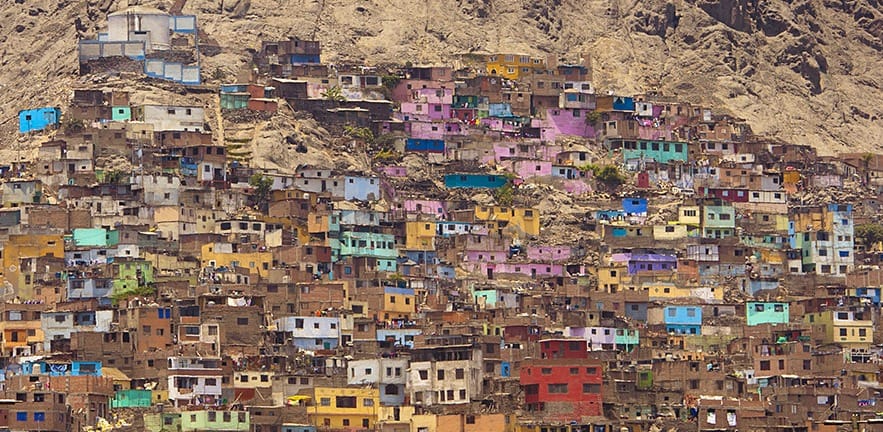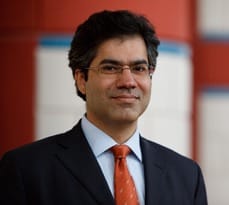The institutional and organisational arrangements that reinforce and perpetuate economic inequality over time need to be better understood in order to tackle this growing problem, argues Kamal Munir of Cambridge Judge Business School.


While much attention has recently focused on the prevalence of economic inequality, the real problem, its stubbornness and durability, have largely escaped attention within organisation theorists. This aspect of inequality is now addressed by Kamal Munir in the latest edition of The SAGE Handbook of Organizational Institutionalism, otherwise known as the “bible of institutional theorists”.
The chapter on economic inequality, co-written by Kamal and entitled “Institutions and economic inequality”, begins with outlining the stark statistics on inequality – the share of wealth by the top 0.1 per cent in the US grew to 22 per cent in 2012 from 7 per cent in 1979 – and consequences of such uneven wealth distribution including poorer mental health, higher drug use and obesity, and increased levels of violence.
The chapter is co-authored by John Amis of the University of Edinburgh Business School, Kamal Munir of Cambridge Judge, and Johanna Mair of the Hertie School of Governance and Stanford University.
Kamal, who is Race & Inclusion Champion at the University of Cambridge, discusses some of the chapter’s findings and suggestions:
We know the statistics on economic inequality – which Oxfam found this year are getting worse globally – but the institutional arrangements that ensure the durability of inequality are relatively unexplored. We believe that organisation theorists need to look into the social and organisational mechanisms that explain the persistence of inequality.
Unfortunately, inequality is often reinforced by everyday interactions. Divisions of wealth and other privileges too often are reinforced through commonplace, everyday practices that, while mundane in themselves, take on importance through repetition and eventually institutionalisation. It is in this repetition that unequal power relations between men and women, CEO and worker, multinational corporation and local supplier, white men and ethnic minorities, come to be taken for granted. In order to change the status quo, which only benefits some, it is important to unpick these everyday ritualised interactions.
Much of organisation and management theory is developed for white, middle-class individuals, mostly men. Job descriptions, performance evaluations, aspirational characteristics are all designed for such a demographic. Indeed, white is not considered a colour in organisation theory. Women, blacks and ethnic minorities, and people from the working classes are encouraged to develop new personalities which can help them rise in their organisations.
Social hierarchies are not held in place by brute force. Although physical force is occasionally necessary in establishing a social structure, the everyday maintenance of an unequal social order relies on a belief system in which different socio-economic strata are seen to deserve their positions. Those who consistently get a raw deal are made to accept their fate. Thus, surveys show that while American class mobility has diminished greatly over the years, especially in comparison to western Europe, faith in the American Dream continues to exist thanks to the ubiquitous rags-to-riches stories that pervade popular media. Academics should study the narratives that are commonly peddled but in fact justify and legitimise inequality.
Management theory does not merely explain phenomena, often it also justifies it. Contrast, for instance, the notion of shareholder wealth creation and welfare. While the sustained redistribution of profits to shareholders – leading to concentration of wealth not only across organisations but also across geographical locations – is accepted as legitimate, the redistribution of wealth to the disenfranchised through welfare programs are criticised relentlessly.
Widening inequality is one of the most pernicious and dangerous developments of our time, threatening social order as we know it, says Kamal. However, it is not inequality per se that he considers problematic, but its durability. Kamal emphasises that management and organisational theorists have a duty to deconstruct the social dynamics that lead to the persistence of inequality inside and around organisations.

